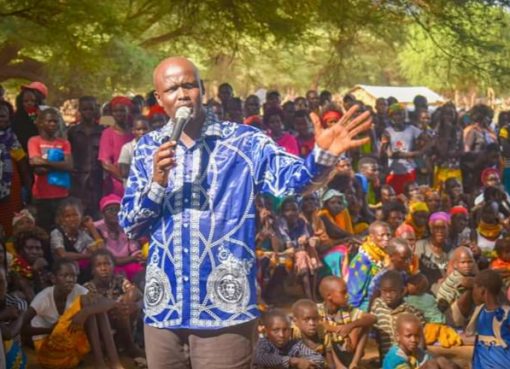The government will not declare Cancer a national disaster at this time because available data is still insufficient to provide solid scientific evidence.
Although Cancer and other non-communicable diseases have continued to be an issue of great public health concern in Kenya, there has to be sufficient data built over time that is scientific, solid and comprehensive enough to back the declaration, Health Cabinet Secretary (CS), Sicily Kariuki has said.
Cancer is the third leading cause of death contributing to 7 percent of deaths after cardiovascular diseases. Infectious illnesses lead in the death rate in the country accounting for 13 percent.
Speaking on Monday evening during the inauguration of the National Cancer Institute (NCI) of Kenya board of trustees at Afya House, Kariuki said that in Kenya today, 47, 887 new cases of cancer are detected and 32, 987 people die annually.
She further added that there are 3, 200 new cancer cases among children below 18 years with the five most common cancers in the Country being breast, cervical, esophageal, prostate and colorectal cancer.
“The rising burden of cancer is being felt across the country and African continent with significant socio-economic implications in terms of health care-needs, lost productivity and premature death,” Kariuki said, noting that the rise in the number of cases of cancer is due to ageing populations arising from improved life expectancy and the increasing adoption of risky behavior.
Despite all this, the CS noted that the country has made strides in its capacity to detect cancer which has significantly improved thus contributing to the noted increase in the number of cases.
The government, the CS explained, has made significant strides in enhancing access to cancer screening and currently cervical cancer screening services are available in public facilities from level 3 health centre to level 6. Clinical breast examination is also being conducted in public facilities from Level 3 upwards, while mammography services are available in every county referral hospital following implementation of the National Government’s Managed Equipment Service project.
“The government has now decentralized treatment so that detected cases are linked to care and Kenyans are now able to access chemotherapy in seven county referral hospitals namely Mombasa, Kisumu, Kakamega, Garissa, Nyeri, Nakuru and Meru,” Kariuki said.
She added that three more hospitals in Embu, Bomet and Machakos are set to start offering chemotherapy services in September this year and all the 10 hospitals have been kitted with chemotherapy chairs, biosafety hoods, essential drugs and capacity building for health workers.
The CS noted that there was equally a solid legal framework anchored on the Cancer Prevention and Control Act (No. 15 of 2012) which established the board thus the overall mandate of the Board is to coordinate and centralize all information and activities related to cancer prevention and control in Kenya.
“The country is therefore looking upon you ladies and gentlemen to coordinate all stakeholders towards a collective response to the cancer burden,” Kariuki told the board.
The CS noted other on-going interventions to further strengthen capacity to manage cancer are operationalization of the Kenyatta University Hospital in the next one month at an estimated cost of Sh.1.5 billion and also construction of radiotherapy centres in Mombasa, Garissa and Nakuru at a cost of Sh.1.5 billion which will be ready for use by December 2019.
Others are equipping of Moi Teaching and Referral Hospital with Radiotherapy equipment by December 2019 valued at Sh.350 million and establishment of an Oncology Reference laboratory at the National Public Health Laboratory within the next one month to support County labs in cancer diagnosis.
Kariuki called upon the board to ensure that cancer awareness creation would be their immediate priority.
“I therefore direct you to immediately embark on a nation-wide lifestyle modification campaign that will reach Kenyans right where they are, in the streets and villages. You will mobilize all stakeholders and do not forget to take advantage of all media platforms including social media,” she said.
Kariuki asked the board to also focus on the other short to medium term initiatives, including setting up behaviour change programmes at the community level, enhancing capacity building of health workers at the primary health care level, engaging NHIF to address the cost of treatment; and also collaboration with other government agencies to address occupational, environmental and lifestyle-related risk factors.
The nine members of NCI board that was constituted and gazetted in May this year included the former Safaricom, Bob Collymore Chief Executive Officer who recently succumbed to cancer.
According to the Chairman of the Board Dr. Lukandu Ochiba they were ready to embark on the nationwide campaign to sensitize the public in order to clear any misconception about cancer.
“We are ready and we want to call on Kenyans to assist us so that together we address and bring down the cancer burden,” Dr. Ochiba said.
Other Board members of the NCI are Alfred Karagu who is the CEO, the Kenya Network of Cancer Organizations chairperson, David Makumi, Digital Content Manager at Royal Media Services Mercy Oburu and Evangeline Njiru, a physician and oncologist who is a lecturer at Moi University’s School of Medicine among others.
By Wangari Ndirangu


